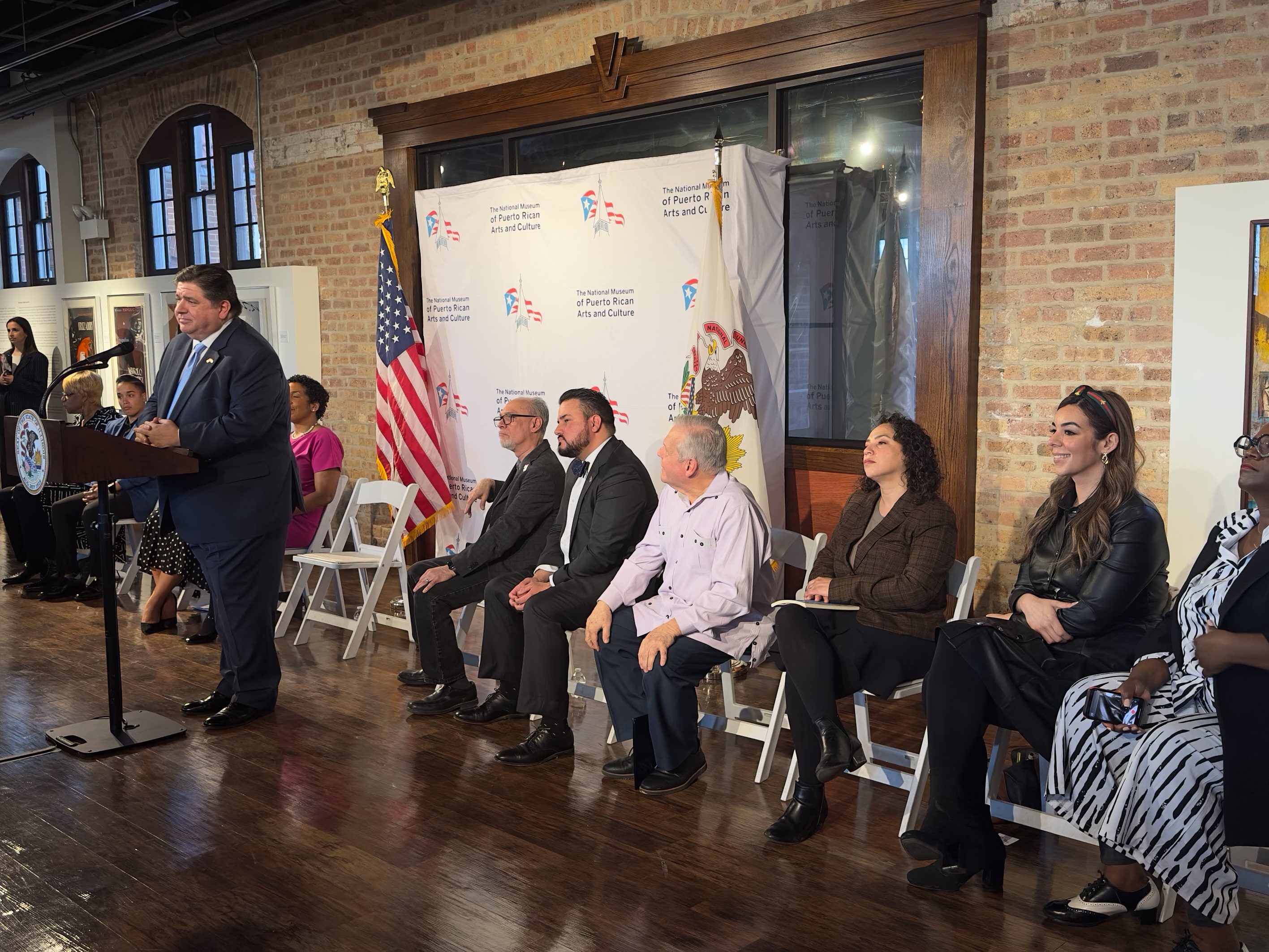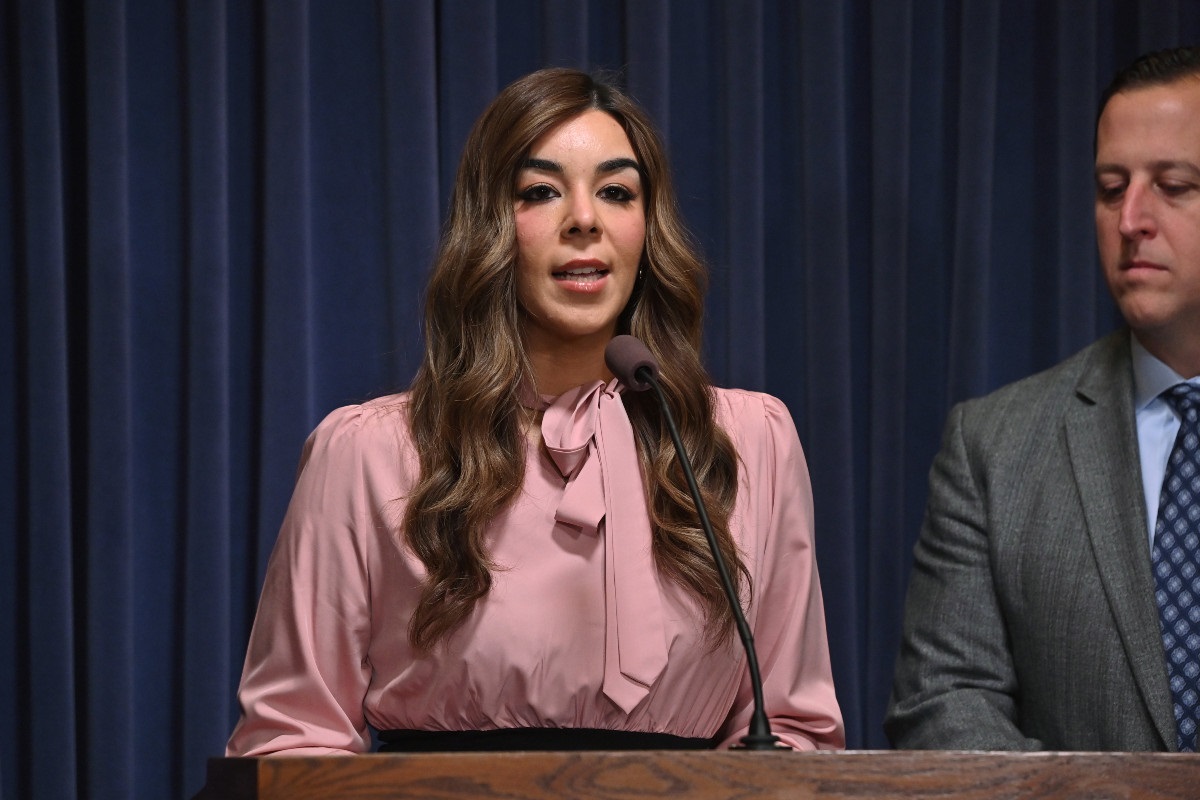Sen. Toro Joins Governor To Celebrate Illinois Film Industry Grant Awards
- Details
- Category: News
I joined my colleagues and the governor to announce a $5 million investment coming to The Fields Studios in my district. I am so excited to see the impact this studio has on our community. It will create thousands of union jobs, showcase the talented filmmakers and actors of Chicago, and make an estimated $1.3 billion dollar impact in the next five years. I look forward to watching the great projects that will come out of Fields!
Toro, Senate Democrats applaud announcement of 10 state-designated cultural districts
- Details
- Category: News
 CHICAGO — State Senator Natalie Toro and other members of the Senate Democratic Caucus joined Governor JB Pritzker and the Illinois Department of Commerce and Economic Opportunity to celebrate communities across the state being honored as State-Designated Cultural Districts.
CHICAGO — State Senator Natalie Toro and other members of the Senate Democratic Caucus joined Governor JB Pritzker and the Illinois Department of Commerce and Economic Opportunity to celebrate communities across the state being honored as State-Designated Cultural Districts.
Senator Toro, who represents Humboldt Park, is thrilled her community is being recognized in this way.
“The Humboldt Park community has such a rich and vibrant culture,” said Toro (D-Chicago). “The State-Designated Cultural Districts Program and this official designation allows us to share and preserve our heritage and traditions while building a critical foundation for continued investment.”
“In Illinois, diversity is our strength, and the State-Designated Cultural Districts Program is shining a much-deserved light on some of our state’s most culturally and historically rich communities, including Puerto Rico Town,” said Majority Caucus Chair Omar Aquino (D-Chicago). “These designations will help Illinoisans celebrate our lineage and traditions of our communities.”
Read more: Toro, Senate Democrats applaud announcement of 10 state-designated cultural districts
Toro encouraged by investment in early childhood, housing in budget proposal
- Details
- Category: News
 SPRINGFIELD — After hearing the governor’s budget address, State Senator Natalie Toro is hopeful that the proposed investments in early childhood education and housing will help address issues she observed when she worked as a teacher in her district.
SPRINGFIELD — After hearing the governor’s budget address, State Senator Natalie Toro is hopeful that the proposed investments in early childhood education and housing will help address issues she observed when she worked as a teacher in her district.
“As a kindergarten teacher, many students would come to my classroom unprepared or behind some of their peers because they were not able to attend Pre-K due to the cost, or they didn’t have access to children’s books growing up,” said Toro (D-Chicago). “Financial barriers to early childhood education can set kids back years in their educational development. I am proud of our governor’s commitment to giving all children in Illinois a fair chance with these investments in early childhood education.”
The proposed budget includes an additional $75 million for ISBE Early Childhood Block Grants, $13 million to launch the Department of Early Childhood, and $3.5 million to support the Dolly Parton Imagination Library early childhood literacy program. It also includes $200 million to fund Early Childhood Workforce Compensation Contracts, as well as $36.5 million to expand access to the Child Care Assistance Program.
In addition, the proposed budget allocates $180 million to support new arrivals to Illinois. A granddaughter of immigrants and advocate for better supports for migrants, Senator Toro is thrilled about this commitment, making the proposed total investment from state, city, and county funds $320 million. The Senator is also supportive of the proposed $10 million investment in a program to erase medical debts totaling an estimated $1 billion in relief for more than 300,000 Illinois households, recognizing the burden high medical bills place on Illinois families.
Read more: Toro encouraged by investment in early childhood, housing in budget proposal
Toro to mitigate gentrification in 20th District with tax relief legislation
- Details
- Category: News
 SPRINGFIELD — To assist long-term homeowners from being priced out of their neighborhoods, State Senator Natalie Toro has introduced legislation that would expand eligibility for the long-time occupant homestead exemption.
SPRINGFIELD — To assist long-term homeowners from being priced out of their neighborhoods, State Senator Natalie Toro has introduced legislation that would expand eligibility for the long-time occupant homestead exemption.
“Historic communities should not be disrupted because of greed,” said Toro (D-Chicago). “This measure will give established homeowners more opportunity to keep their homes, preserving communities that have been cornerstones for generations.”
Under Toro’s measure, the threshold for qualifying for the long-time occupant exemption would be lowered, allowing more homeowners to benefit. Currently, homeowners must experience a property assessment increase exceeding certain percentages to be eligible for the exemption. Senate Bill 2845 would lower these percentages from 10% to 5% for households earning between $75,000 and $100,000, and from 7% to 3% for households earning $75,000 or less. The property must also be occupied for 10 continuous years or 5 continuous years if the person receives assistance to acquire the property as part of a government or nonprofit housing program.
Read more: Toro to mitigate gentrification in 20th District with tax relief legislation
More Articles …
Page 8 of 14






